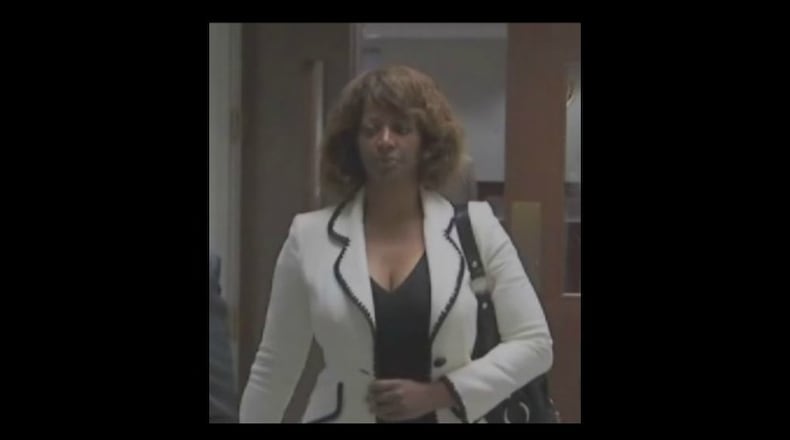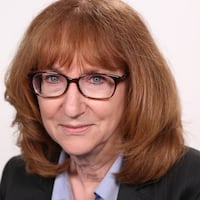The patient kept screaming as she underwent liposuction at a Cobb County clinic: "It's tearing. It's burning. It's tearing. It's burning."
April Jenkins lay on the operating table, her hands physically restrained, medical board records state. She already had been given the maximum doses of sedatives. It wouldn't be safe to give her more.
Credit: Lois Norder
Credit: Lois Norder
So employees of Dr. Nedra Dodds took action: They put a towel in Jenkins' mouth to bite down on and to quiet her screaming. "You know, the screaming, we don't want any other patients or anybody in the office to hear that," a member of the doctor's staff present for the procedure later testified.
And the procedure continued. At the end, Jenkins made a loud snore. A few minutes later, her heart stopped pumping blood. A short time after that, the 37-year-old was dead.
A few months after Jenkins' death, another of Dodds' liposuction patients died. Erica Beaubrun was recovering at Dodds' Kennesaw clinic when her heart stopped pumping blood. When EMTs were finally called, they found Beaubrun in a pool of blood, no medical doctor in charge and no ongoing CPR, medical board records state. But EMTs identified a fast, organized heart rate, began CPR and rushed her to a hospital. It was too late. The 27-year-old was pronounced dead after 90 minutes of unsuccessful efforts to revive her.
The Georgia medical board later found that Dodds grossly failed to provide the standard of care patients should expect from their doctor, and the board revoked her license. But did Dodds commit a crime? That question has lingered for more than a year.
Dodds and an assistant were criminally indicted early last year for felony murder and aggravated battery in the women's deaths.
In its investigation, the medical board found that Dodds was absent for parts of Jenkins' surgery, though records didn't show when, what transpired when she wasn't in the surgical suite or who was administering medications then. Records also show the surgery lacerated Jenkins' diaphragm and liver. In Beaubrun's case, the board said Dodds' records didn't reflect any vital signs or measurements for a crucial 10 minutes as her heart was failing.
But recently, the prosecutors decided not to pursue criminal charges, Channel 2 Action News reported on Wednesday. District Attorney Vic Reynolds told the station that he didn't think he could bring a successful criminal case against her.
In considering when bad medical practices crosses the line to being a crime, prosecutors around the country have had to make similar decisions, said Dr. Fazal Khan, an associate professor at the University of Georgia School of Law.
No one is really sure where the line is, said Khan, who holds both medical and legal degrees. So doctors are rarely criminally prosecuted, he said, even for grossly negligent acts.
But there is a line. A jury decided that Michael Jackson's doctor Conrad Murray crossed it, and he was convicted of involuntary manslaughter for prescribing a powerful anesthetic that caused the entertainer's overdose death.
"Even the AMA... has said that reckless conduct can be criminally culpable," Khan said. "But what is reckless? If they are taking a really large and unjustified risk, but ignore that and continue with the treatment."
A doctor's intent and mental state are also factors prosecutors consider.
Still, with case law unclear, action against doctors is usually left to medical boards, Khan said.
The Georgia board issued an emergency suspension of Dodds' license in early 2014, then revoked her license in 2015.
An administrative law judge who reviewed the medical board's action had this to say in his November 2015 ruling: "Dodds' failure as described in the undisputed facts of this case, and the lack of evidence of mitigating factors or remedial measures presented at the hearing, the Court concludes that it would be reckless for it to recommend any disciplinary action short of revocation.
"Dr. Dodds' conduct grossly departed from the level of care every patient should expect from his or her physician and, in two cases, her failures resulted in the death of a patient under her care...The overwhelming evidence in the present case demonstrates that Dr. Dodds' continued practice poses an unacceptable risk to the health and welfare of the citizens of this state, for which reason her license to practice medicine in the state of Georgia should be revoked."
Dodds could still have to face a jury in a civil case involving the deaths. A lawsuit filed by Jenkins' family has yet to be resolved.
Click here to read what a medical school professor has to say about when malpractice may be a crime. http://www.mdedge.com/obgmanagement/article/63254/stuff-nightmares-criminal-prosecution-malpractice/page/0/2
About the Author
Keep Reading
The Latest
Featured





